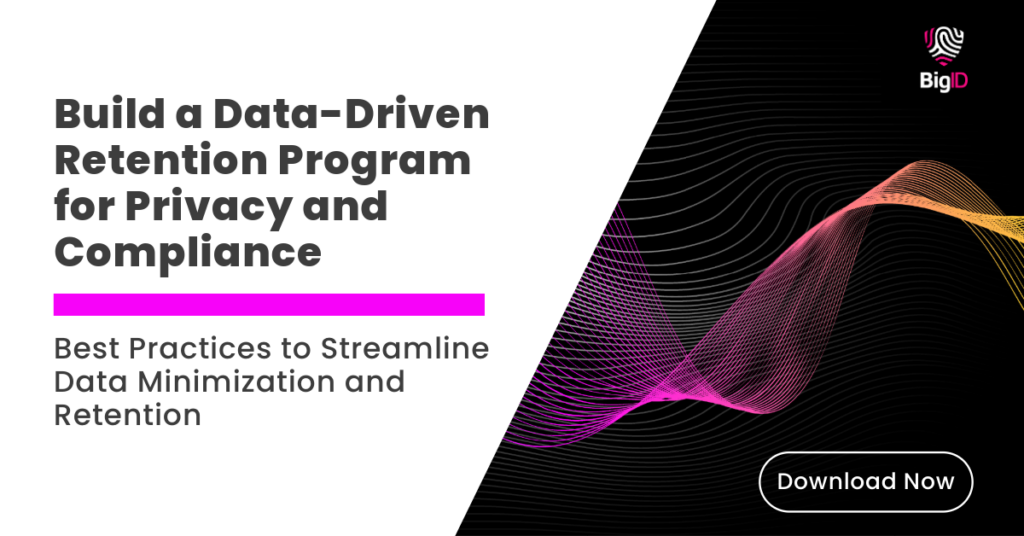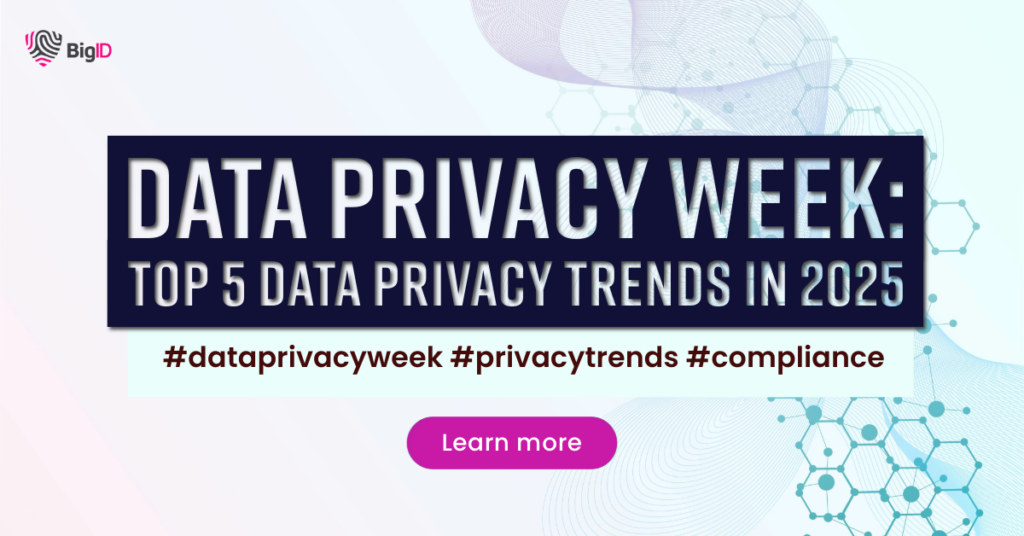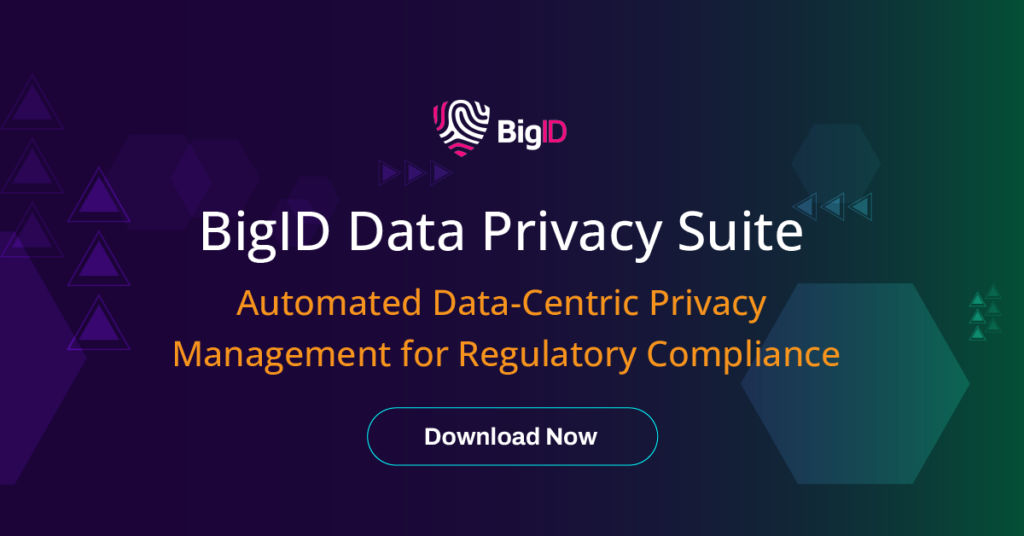As we step into 2025, the world of data privacy is poised to undergo monumental changes. As David Bowes’s hit song “Changes” says, “Ch-ch-ch-ch-changes, turn and face the strange, Ch-ch-changes.” Well, this is relevant to data privacy, as we face an ever-evolving ecosystem that grows stranger each year.
We know that data privacy is changing, but it’s essential to focus on not just compliance but trust, transparency, and security. Organizations prioritizing data privacy as a cornerstone of trust will stand tall in an era of increasing consumer expectations, digital threats, and legislative scrutiny.
Here are 5 data privacy trends set to reshape the data privacy landscape in 2025:
1. A Teenage Wasteland of Data
The US Federal Children’s Online Privacy Protection Act (COPPA) initially focused on protecting the data of children under the age of 13. Fast-forward 25+ years, and things have drastically changed. Now, several U.S. state privacy laws have been devised to protect consumers under 18, particularly regarding the sale of teen data and targeted advertising. In 2025, watching for states with special protections for teen data will be essential.
Additionally, outside of the US, there are several indications that children’s privacy will be a top priority, as it becomes increasingly vital for organizations to clearly understand how their online services, products, and content can impact a child’s privacy. The UK, Australia, and Norway are looking to introduce even more stringent laws and requirements aimed at children’s online safety, while there will be expectations of other countries following suit.
2. The Kaleidoscope of U.S. State Laws
The US data privacy landscape is so fragmented that it looks like a kaleidoscope. With five new laws going into effect as of Jan 1, 2025— Delaware, Iowa, Nebraska, New Hampshire, and New Jersey and Tennessee, Maryland, and Minnesota coming up later in the year. This means businesses must now coordinate to ensure compliance with these varying laws.
Unlike the European Union (EU) GDPR, the US doesn’t have a Federal privacy law, which is less likely to happen, the US will continue to rely on an assortment of state laws, each with its own unique requirements. This isn’t ideal for a consistent compliance strategy as it would be easier for businesses to comply with potentially over 16+ US state privacy laws and navigate the varying inconsistencies between them. This approach requires finding the common denominators across state laws while having the flexibility for specific requirements.
3. After Tik-Tok there is Heavy Restrictions on Foreign Data Sales
The Protecting Americans’ Data from Foreign Adversaries Act (PADFA) was enacted in June 2024, but additional restrictions and requirements will apply to personal data sales and transactions outside the United States in 2025.
The FTC enforces and prohibits “data brokers” from selling, licensing, or sharing “personal identifiable sensitive information” to specific “foreign adversaries” such as Russia, China, North Korea, and Iran, including any entity controlled by those adversaries.
Additionally, the U.S. Department of Justice (DOJ) added a final PADFA rule restricting and regulating foreign personal data transactions. Although circumstantial, the rule restricts and sometimes prohibits transactions such as data brokerage, vendor, employment, and investment agreements with those countries. The covered transactions mainly involve bulk U.S. sensitive personal data, such as geolocation, biometrics, personal health, and financial or government-related data.
As expected, the DOJ’s final rule includes civil penalties as well as criminal fines and penalties for violations and will go into effect on April 8, 2025. For both requirements, organizations need to implement policies and compliance strategies so as not to be in the crosshairs of the FTC and the DOJ.
4. The Face-Off Between Biometric Data & Privacy
Biometric data will be a growing topic of privacy debate in 2025. These technologies seemed so futuristic in some of my favorite movies, like Minority Report, where facial recognition, eye retina scans, voice authentication, and fingerprint scanning now appear omnipresent. However, as society has adopted these technologies, they are now subject to much scrutiny.
Illinois was the first state to regulate biometric data with its Biometric Information Privacy Act (BIPA). However, many other states, such as California, Washington, and Texas, are also doing so. For instance, Texas is actively enforcing its Capture or Use of Biometric Identifier Act, which requires consent and some pretty strict retention policies.
When innovation moves at the speed of light, eroding public trust in technologies can hamper adoption, integration, and synergy. Organizations must develop proactive compliance strategies, from gaining consent to auditing retention policies. Companies that ignore these laws are not inheriting risk but eroding privacy. So, in 2025, expect a heightened global focus on biometric data.

5. Iron Sharpens Iron with Sharper Tools and Stronger Compliance
There is a relentless storm of regulatory requirements, rising data complexities, and growing operational risks. Much like the ancient principle that “iron sharpens iron,” AI automation serves as the tool to refine and enhance compliance programs, allowing privacy teams to tackle challenges with precision and strength.
In 2025, businesses will start using more widely automated tools. AI is no longer just a privacy challenge; it’s a solution. Companies will increasingly leverage AI-powered privacy tools to classify sensitive data, detect risks, manage consent and data rights, streamline AI governance and automate compliance workflows, and sharpen their organization’s ability to proactively address GDPR, CCPA, EU AI Act, and NIS2 regulations.
According to the IBM data breach report, organizations that fully deployed AI and automation for data protection saved nearly $2.22 million in breach costs compared to those that did not. AI automation will drastically reduce manual effort and ensure consistency and reliability. Expect AI to lead privacy impact assessments, identify regulatory blind spots, and secure consumer data more effectively.
Are You Prepared for this Data Privacy Day?
The data privacy landscape is evolving faster than ever, and 2025 promises to be a defining year. From adaptive frameworks to AI-powered privacy tools, the companies that stay ahead of these trends will not only achieve compliance but also build trust and create value
On this data privacy day, is your organization ready to embrace the future of data privacy? The time to act is now. BigID helps organizations of all sizes address data privacy holistically with a cohesive approach to remediating privacy risk. So save time, automate manual processes, and execute your privacy program during this data privacy day. Get a 1:1 demo with our privacy experts to see BigID in action.


